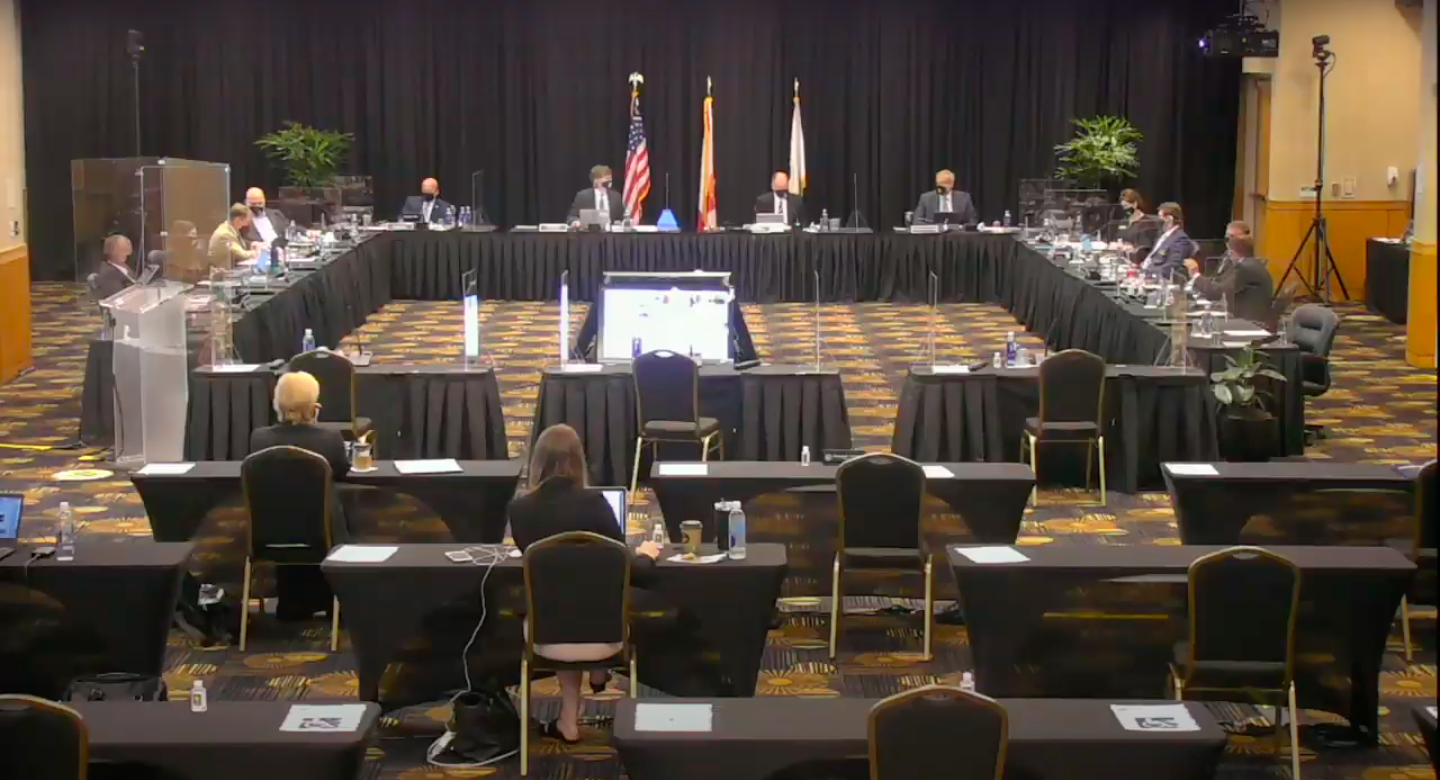BOG approves USF’s fall reopening plan

In the shadow of rising COVID-19 cases in the state, the Florida Board of Governors (BOG) on Tuesday afternoon approved the fall reopening plans of the 12 public universities, including USF’s Resuming University Operations Amid a Global Pandemic plan.
The meeting, held in person for the first time since January, was hosted at UCF and featured presentations from representatives of the 12 Florida public universities on their individual plans for resuming campus activity in the fall semester.
Although the COVID-19 conditions continue to change rapidly, BOG Chair Sydney Kitson said he believes the universities are ready to face the incoming challenges of resuming campus operations.
“No doubt that the fall semester will present challenges to all of us,” Kitson said. “Our universities must prepare to respond to possible virus cases with testing, tracing and medical and mental health care for students and employees.
“Preparation is the key and I believe that our universities are ready. We’re the number one ranked university system in the country and, together, we will continue to lead the nation during these uncertain times.”
On May 28, the BOG created the “State University System of Florida Blueprint for Reopening Campuses” consisting of guidelines for universities to develop their plans to “phase-in” back to the fall semester.
Florida Surgeon General Scott A. Rivkees said universities should encourage individual responsibility and have all efforts focused on ensuring the health and well-being of students, faculty and staff.
“Florida data informs us that a younger demographic is now testing positive for COVID-19 than before,” Rivkees said. “Fortunately, the effects on the young are milder than those who are elderly and those with underlying medical conditions, but we need to continue to protect the elderly and those with underlying medical problems. Universities will need to use their good judgment and apply the best practices for us to turn the spread of COVID-19.”
Through video, USF President Steven Currall, alongside USF Provost Ralph Wilcox, Dean of the College of Public Health Donna Petersen and Dean of the Morsani College of Medicine Charles Lockwood, highlighted the university’s four-phased approach to resume campus operations as well as measurements toward minimizing the spread of COVID-19.
Any changes to the fall schedule will be announced in late July and consist of a “flexible hybrid” academic delivery model. For this model, the university will rely on a mix of face-to-face courses, online courses and blended courses that are partially in-person and partially online.
As USF officially consolidates its three campuses — Tampa, St. Petersburg and Sarasota-Manatee — Currall emphasized the importance of the university’s coordination with authorities from the Florida Department of Health and each campus’ county.
“In some respects, consolidation couldn’t have come at a better time to serve the needs of our students and leverage the combined intellectual capital of faculty across three different campus locations,” Wilcox said.
Under a partnership with the Florida Department of Health, Currall said the College of Public Health will work toward expanding access to free influenza vaccines for students, staff and faculty on all campuses.
“We’re also mindful of considerations around adding influenza-type illnesses and tracking those as well because they are related to COVID-19 in terms of their causes and symptoms and so on, so we’re really mindful of that in terms of prevention and mitigation as well,” Currall said.
In regards to initial screening and testing, all students, faculty and staff will complete a Baseline Symptom Survey before returning to campus in the fall semester. The survey will be accessible through an app currently being developed by USF Information Technology (IT) and will become available for use around July 20, according to Currall.
UF also will be requiring students, staff and faculty to complete symptom surveys prior to their arrival on campus.
In addition, Petersen said USF is working on establishing testing sites on or near the university’s three campuses.
The university also will be randomly selecting 10 percent of students, faculty and staff returning to campus to test for COVID-19. An email with the location to receive and drop off the self-administered COVID-19 test kit will be sent to those selected for testing.
All individuals who test positive or are asymptomatic will be immediately required to isolate for 14 days from the test date. While faculty, staff and off-campus students will self-isolate, residential students will be isolated in reserved on-campus housing.
For residential students, Housing and Residential Education will reserve 250 beds between the Tampa and St. Pete campuses. FSU will have an 80-bed on-campus hall reserved for students who test positive.
In contrast, UF will require student residents to quarantine at an off-campus site for a period of 14 days.
With the confirmation of a positive test, USF will contact the local county health department of the person testing positive to conduct contact tracing, according to Currall.
When it comes to faculty, Currall said those in high-risk categories will be given priority to teach their courses online.
“We’ll also insist that faculty members are complying with our university protocols involving any face-to-face instruction, and we are reminding our faculty that they must all be flexible to adjust to a possible increase in remote instruction if public health data require that,” Currall said.”
For Rivkees, the mandatory use of face coverings, the frequent practice of handwashing and social distancing will play a key role in mitigating the spread of COVID-19 once university campuses reopen in the fall semester
“It is clear that the COVID-19 virus will not likely disappear anytime soon and positive virus cases in campus communities will likely occur,” Rivkees said. “So this distancing policies and other protections for students and employees will become the norm for the foreseeable future.”






